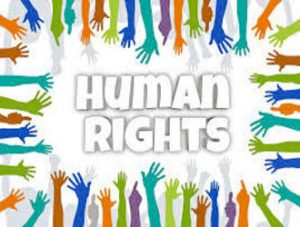There must be law and order for society to exist and thrive. A world in chaos is not an ideal place to live in, it's as simple as that. Yet no matter how much we try to be civilized and respect one another, there are those who have no regards for society and do things that are the complete opposite of what’s expected from a decent human being. It is the reason why human rights organizations exist – to ensure that human rights are upheld and not violated while at the same time fighting for a person’s human right in the unlikely situation that it has been violated by another person/s.
 As the years go by, people start to develop a love-hate relationship towards human rights organizations especially that politics has not waned over time. Despite the influence of politics, though, many people have high regard for these human rights organizations in different parts of the globe. These organizations mediate on behalf of the people and have a big (positive) impact on the lives of millions of people in these places. They serve as an extra pair of hands in addressing important issues that the government can no longer or take time to address and help uplift people’s lives through various activities and programs they implement.
As the years go by, people start to develop a love-hate relationship towards human rights organizations especially that politics has not waned over time. Despite the influence of politics, though, many people have high regard for these human rights organizations in different parts of the globe. These organizations mediate on behalf of the people and have a big (positive) impact on the lives of millions of people in these places. They serve as an extra pair of hands in addressing important issues that the government can no longer or take time to address and help uplift people’s lives through various activities and programs they implement.
Most see human rights organizations in a positive light. Slightly more than eight-in-ten Kenyans and Indonesians said that such organizations are having a good influence on how things are going in their countries, while roughly two-thirds expressed this view in India and Mexico. Compared with the other major institutions tested, human rights organizations stacked up well. Overall, only the military and media tended to get better ratings, while court systems and police received the most negative reviews.
At 65%, Mexico had the smallest share of the public saying human rights groups are having a positive impact, though Mexicans generally expressed less positive views about national institutions than the other three publics surveyed.
Human rights organizations have its limitations but it does not lessen their clout or influence on a great number of people. It is especially true in third-world countries that are riddled with poverty, corruption, and endless senseless violence that always leaves the innocent aggrieved. Through human rights organizations, the victims are able to claim justice and make the perpetrators or criminals pay for their crimes even if they have no money to pay for a lawyer by themselves.
The implementation of human rights is in crisis worldwide. The annual reports of Amnesty International, Human Rights Watch and other human rights organizations continue to reveal widespread gross violations of human rights in numerous countries the world over and South Asia region is not an exception. Democracy is non-existent or a sham in many countries in our part of the world. National resources are squandered by despotic rulers instead of being used to satisfy the basic economic and social needs of their people. Corruption is rife. The judiciary lacks the strength, the means, or the will to protect human rights in many places. The national human rights institutions are non-existent or non-performing in some cases in South Asia and elsewhere. In South Asia, many countries ratify human rights treaties without making the slightest attempt to give effect to them. The self-righteous representatives gather in the halls of the United Nations and use their majorities to insist that countries are grossly violating human rights be treated with kid gloves through dialogue and cooperation, instead of through forthright condemnation of atrocities. The UN Human Rights Council does little for the actual protection of human rights, and its Universal Periodic Reporting Process, for the time being, lacks teeth. The situation is dire.
(Via: http://www.livelaw.in/human-rights-discourse-south-asia/)
Whether in the local arena or the global one, human rights is a hot topic as you can all see how much hatred and violence there is in the world right now. We not only regard wars and political conflicts as the only cause of human rights abuse but even the fact that most people can’t meet their basic needs and live in extreme poverty is a human rights issue in itself. And seeing how complex the world has become, the list of human needs and rights likewise grows but it isn’t an assurance that they are met despite the many tech advancements the rest of the world now enjoys. Humans will continue to struggle and meeting their needs isn't always a walk in the park but they are not alone in their journey - that they can count on.
How Society Now Views Human Rights Organizations Find more on: SoulVisual
source https://www.soulvisual.com/blog/how-society-now-views-human-rights-organizations/
No comments:
Post a Comment